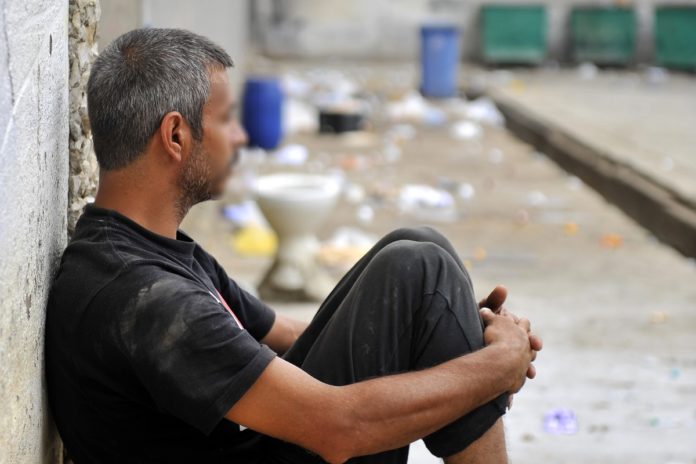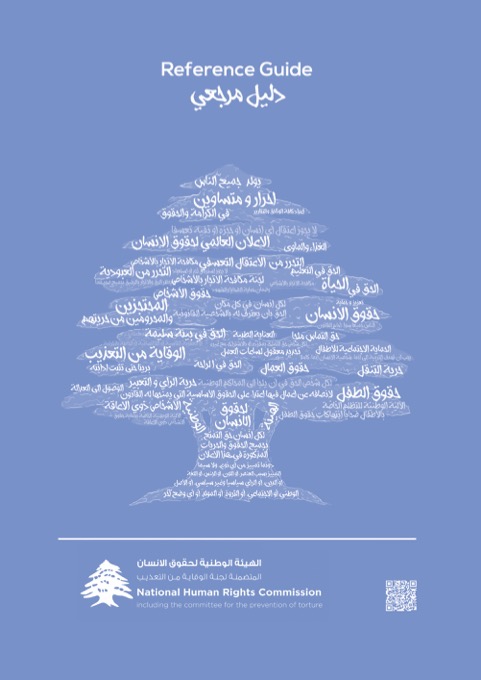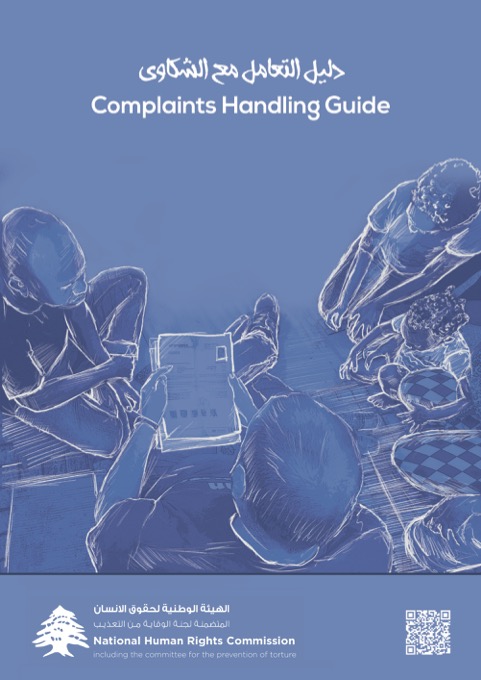هذه المقالة متاحة أيضًا بـ: العربية (Arabic)
In a new step aimed at addressing the overcrowding issues in Lebanese prisons and easing the burden on families amid the ongoing Israeli aggression on Lebanon, the National Human Rights Commission, which includes the Committee for the Prevention of Torture (NHRC-CPT), in collaboration with the Geneva Centre for Security Sector Governance (DCAF), has initiated an important initiative. This initiative targets the submission of release requests for eligible detainees before various Lebanese courts. This initiative received appreciated cooperation from the leadership of the Prisons Regiment and the Prisons Branch of the Internal Security Forces.
This initiative involves assigning a group of lawyers to visit prisons across Lebanon to thoroughly review detainee files and identify eligible individuals for legal release requests. This step is part of the National Human Rights Commission’s efforts to reduce overcrowding in Lebanese prisons. This problem has become both a humanitarian and security issue amidst the ongoing Israeli aggression.
Harsh Conditions and Growing Overcrowding
This initiative comes at a time when the Israeli aggression against Lebanon has escalated and expanded, reaching the capital, Beirut, with war crimes and serious violations being committed by Israeli occupation forces. These forces have breached all the rules governing hostilities without respecting the protection afforded by international humanitarian law to certain entities, including hospitals, civil defense centers, and emergency and relief services. This situation places detention centers and prisons in potential danger.
Prisoners and their families are both suffering from the impact of this crisis, with increasing psychological pressure on families who struggle to provide financial support to meet their basic needs due to the lack of resources inside prisons.
Collaboration with DCAF and File Review
The National Human Rights Commission is carrying out this initiative with the Geneva Centre for Security Sector Governance (DCAF). This internationally recognized center supports countries in improving the management of their security and justice sectors. A group of specialized lawyers has been assigned to visit various prisons in Lebanon to review the judicial files of detainees and ensure that release requests can be submitted for those who meet the legal criteria.
During these visits, lawyers carefully examine legal files, ensuring that all conditions allowing for the submission of release requests before the courts are met. These criteria include reviewing the length of detention, the progress of trials, and whether there are any legal obstacles or public safety risks that would prevent their release.
Humanitarian Goals and Easing Burdens
This initiative aims to achieve several humanitarian and social goals simultaneously. On the one hand, it seeks to reduce overcrowding in Lebanese prisons, which has become a significant burden on the state as prison management costs rise with the growing number of detainees. On the other hand, it aims to ease the burden on the families of detainees, who find themselves in difficult circumstances amid the displacement crisis and the Israeli war of aggression.
This initiative also contributes to speeding up the pace of justice, as releasing eligible detainees reduces the burden on the judiciary and allows courts to focus on more complex cases that require intensive follow-up. Additionally, it helps ease psychological and social tensions inside prisons, as overcrowding can exacerbate problems of violence and abuse.
Judicial Support and Cooperation with Authorities
To ensure the success of this initiative, the President of the National Human Rights Commission, Dr. Fadi Gerges, held a series of communications with senior judicial authorities in Lebanon. Dr. Gerges reached out to the President of the Supreme Judicial Council, Judge Suhail Abboud, and the Public Prosecutor, Judge Ghassan Oueidat, to coordinate efforts and cooperation between the commission and judicial authorities to facilitate the submission of release requests and ensure swift decisions.
The judicial authorities welcomed this initiative, expressing their willingness to cooperate with the commission and the assigned lawyers to follow up on detainee files and expedite the necessary legal procedures. This cooperation is expected to significantly impact the process of releasing eligible detainees, especially given the genuine willingness of all concerned parties to work towards alleviating the suffering of prisoners and their families.
Continued Efforts and a Call for More Cooperation
The National Human Rights Commission, in collaboration with DCAF, continues to follow up on prison visits and regularly review files. These efforts are expected to cover the majority of Lebanese prisons in the coming weeks. All individual detainee cases are being studied to ensure that the submitted release requests are based on solid legal grounds.
The commission urges all relevant Lebanese authorities to cooperate and contribute to the success of this initiative. It also calls on all human rights organizations and civil society to support these efforts and monitor the conditions of prisons and detainees to ensure the protection of human rights and promote social justice.
Anticipated Results and Positive Impacts
This initiative is expected to yield tangible results in the coming period. It will reduce the number of detainees in prisons and, consequently, improve living conditions within these facilities. The release of eligible detainees will also ease the burden on the judiciary, helping accelerate the resolution of pending cases.
In conclusion, this positive step taken by the National Human Rights Commission in collaboration with DCAF marks an essential beginning in addressing prison issues in Lebanon and promoting detainee rights. Efforts must continue at all levels to ensure the sustainability of this initiative and achieve further progress in the field of human rights and justice.


